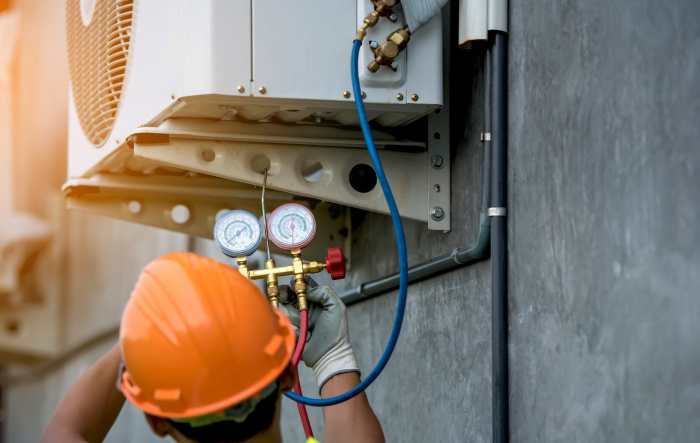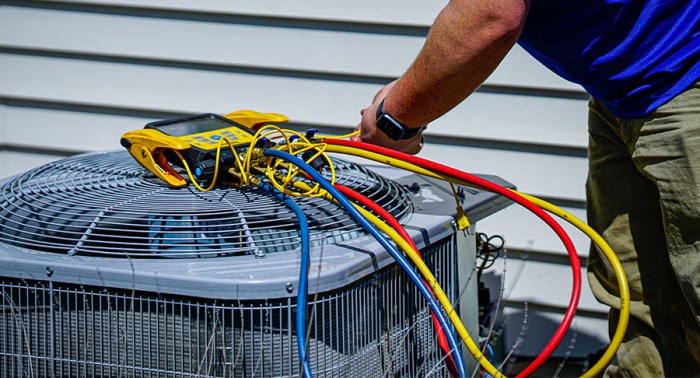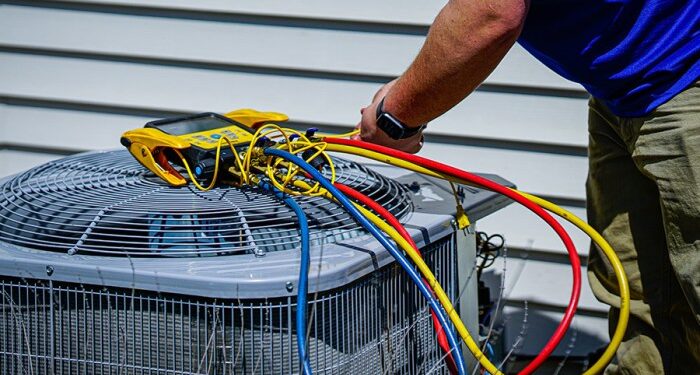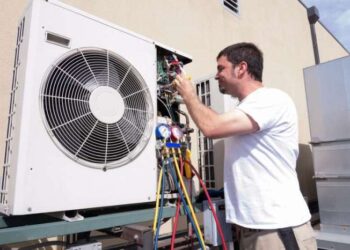Exploring the significance of AC tune-ups is essential for maintaining a well-functioning system. Regular maintenance not only enhances efficiency but also prolongs the lifespan of your AC unit. Let's delve into the world of AC tune-ups to understand their crucial role.
Detailing the key components inspected during an AC tune-up and the benefits of regular maintenance will shed light on the importance of this often overlooked task.
Importance of AC Tune-Up

Regular AC tune-ups are crucial for maintaining the efficiency and longevity of the system. By having your AC unit serviced annually, you can ensure that it operates at its optimal performance, reducing the risk of breakdowns and costly repairs in the future.
Preventing Potential Issues
One of the key benefits of regular AC tune-ups is the prevention of potential issues that can arise with the system. These can include dirty filters, clogged coils, refrigerant leaks, electrical problems, and more. By addressing these issues early on through tune-ups, you can avoid major malfunctions and keep your AC running smoothly.
Saving Money in the Long Run
Investing in regular AC tune-ups can actually help you save money in the long run. By catching small issues before they escalate into major problems, you can avoid costly repairs or even premature replacement of your AC unit. Additionally, a well-maintained system operates more efficiently, leading to lower energy bills and increased savings over time.
Components Checked During an AC Tune-Up

During an AC tune-up, several key components are typically inspected and serviced to ensure the optimal performance of the system. These components play a crucial role in the overall functionality of the AC unit and can lead to various issues if not properly maintained.
Filters
Filters are one of the most important components checked during an AC tune-up. They help in trapping dust, dirt, and other particles, preventing them from entering the system. Clogged filters can restrict airflow, causing the system to work harder and reducing its efficiency.
Regularly cleaning or replacing filters can improve indoor air quality and extend the lifespan of the AC unit.
Coils
The coils in an AC unit, both evaporator and condenser coils, are responsible for absorbing and releasing heat. Over time, these coils can accumulate dirt and debris, hindering the heat transfer process. Cleaning the coils during a tune-up can improve energy efficiency and prevent potential breakdowns.
Refrigerant Levels
Refrigerant is essential for the cooling process in an AC system. Low refrigerant levels can lead to poor cooling performance and increased energy consumption. During a tune-up, technicians check the refrigerant levels and ensure there are no leaks in the system.
Maintaining proper refrigerant levels is crucial for the AC unit to operate efficiently.
Common Issues
Failure to properly maintain these components can result in various issues such as reduced cooling capacity, higher energy bills, system breakdowns, and poor indoor air quality. By scheduling regular AC tune-ups and addressing any issues promptly, homeowners can ensure their AC system operates smoothly and efficiently throughout the year.
Benefits of Regular AC Maintenance

Regular maintenance of your air conditioning system comes with a range of benefits that not only improve the efficiency of your unit but also contribute to a healthier indoor environment. By scheduling routine tune-ups, you can ensure that your AC system operates at its best, providing optimal cooling while keeping your energy bills in check.
Improved Energy Efficiency and Indoor Air Quality
One of the key advantages of regular AC maintenance is the improved energy efficiency it brings. When your system is well-maintained, it operates more efficiently, consuming less energy to cool your space
Additionally, proper maintenance can enhance indoor air quality by ensuring that your AC system is clean and free of dust, mold, and other contaminants. This is particularly important for individuals with allergies or respiratory conditions, as clean air helps to maintain a healthy living environment.
Extended Lifespan of the System
Another benefit of regular AC maintenance is the extension of your system's lifespan. By addressing any issues promptly and ensuring that all components are in good working condition, you can prevent premature wear and tear, prolonging the life of your unit.
This not only saves you money on costly repairs or replacements but also allows you to enjoy the comfort of a reliable AC system for years to come.
Prevention of Major Breakdowns
Timely maintenance can also help prevent major breakdowns, especially during peak usage periods when your AC system is working overtime to keep you cool. By identifying and addressing potential issues early on, such as refrigerant leaks, faulty wiring, or worn-out components, you can avoid sudden breakdowns that leave you sweltering in the heat.
Regular tune-ups can help you catch these problems before they escalate, ensuring uninterrupted comfort throughout the hot summer months.
DIY AC Maintenance Tips

When it comes to maintaining your AC system, there are some tasks you can do yourself to keep it running smoothly. Not only does this help extend the lifespan of your unit, but it can also improve its efficiency and performance.
Changing Filters Regularly
One of the most important DIY maintenance tasks for your AC system is changing the filters regularly. Clogged or dirty filters can restrict airflow, causing your system to work harder and consume more energy. Make sure to check your filters every 1-3 months and replace them as needed.
Cleaning Vents and Ducts
Another crucial task is cleaning the vents and ducts of your AC system. Dust, debris, and mold can accumulate in these areas, affecting the air quality in your home and reducing the efficiency of your unit. Use a vacuum or damp cloth to clean the vents and schedule professional duct cleaning every few years.
Safety Precautions
It's essential to follow safety precautions when conducting DIY AC maintenance to avoid injuries or damage to your system. Always turn off the power to your unit before performing any maintenance tasks, and wear gloves and protective eyewear when handling cleaning agents or sharp tools.
Learning Resources
If you're looking to learn more about DIY AC maintenance, there are plenty of resources available online. Websites, forums, and video tutorials can provide step-by-step guides on how to perform basic maintenance tasks on your AC system. Additionally, you can refer to your unit's manual for specific maintenance instructions.
Closing Notes
In conclusion, prioritizing AC tune-ups can lead to long-term savings by preventing costly repairs and ensuring your system operates at its best. Remember, a well-maintained AC system is a happy AC system.
Essential FAQs
Why is regular AC tune-up important?
Regular AC tune-ups are crucial to maintain efficiency, prevent potential issues, and save money in the long run by avoiding costly repairs.
What components are typically checked during an AC tune-up?
Key components like filters, coils, and refrigerant levels are inspected and serviced to ensure optimal functionality of the AC system.
What are the benefits of regular AC maintenance?
Scheduling regular AC maintenance leads to improved energy efficiency, better indoor air quality, and extends the lifespan of the system.
Are there any DIY AC maintenance tips?
Homeowners can perform basic tasks like changing filters and cleaning vents. Following safety precautions is crucial during any DIY maintenance.
Where can individuals learn more about DIY AC maintenance?
There are resources and guides available online to help individuals learn and perform DIY maintenance tasks for their AC systems.














